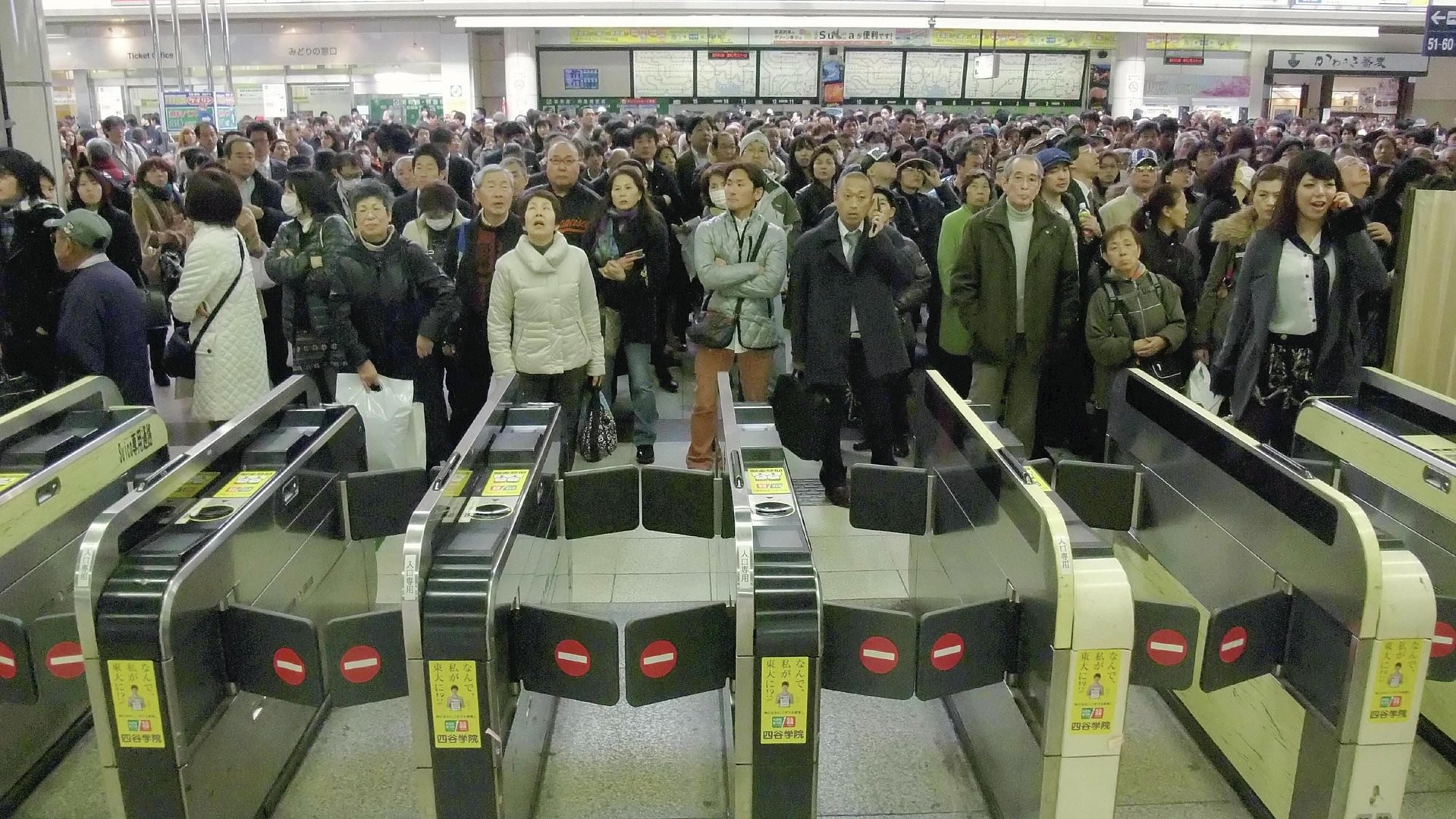Happy Telework Day, Japan’s practice day for staying home during the 2020 Olympics
On July 24, Japan encouraged companies to experiment with what is still a relatively uncommon workplace policy in the country: Allowing employees to work from home.


On July 24, Japan encouraged companies to experiment with what is still a relatively uncommon workplace policy in the country: Allowing employees to work from home.
The government campaign, which will be repeated each year on July 24 for the next three years, is an effort to reduce congestion ahead of the 2020 Summer Olympics, which will be hosted in Tokyo and are expected to draw 920,000 visitors to the city each day.
More than 900 companies participated in the event, though commuters gave mixed reviews on the impact of the designated telecommuting day on public transit congestion.
Working from home in Japan is less prevalent than in countries such as the United States. About 16% of Japanese companies in 2015 allowed employees to telecommute at least some of the time, according to a report from the Ministry of International Affairs and Communications. In an effort to promote worker-friendly culture, prime minister Shinzo Abe’s administration has said that it would like to raise the number of workers in Japan who telecommute one day a week to 10% by 2020. At the time, in 2015, around 4% of workers telecommuted once per week. By contrast, in a recent Gallup poll, 43% of employed Americans said they already spend at least some time working remotely.
Telework has been relatively slow to take off in Japan largely due to a work culture that emphasizes long hours and face time and fears about hacking, according to the Wall Street Journal.
Though the short-term goals of Telework Day are to reduce congestion for the Olympics (London made a similar request of its residents during the 2012 Olympics), government officials told Reuters that the goal was also to promote better working conditions. ”In the past, working long hours was considered a virtue, but this thinking will not hold up in the future,” Hiroshi Ohnishi, a planner at the Ministry of Economy, Trade, and Industry, told the news organization.